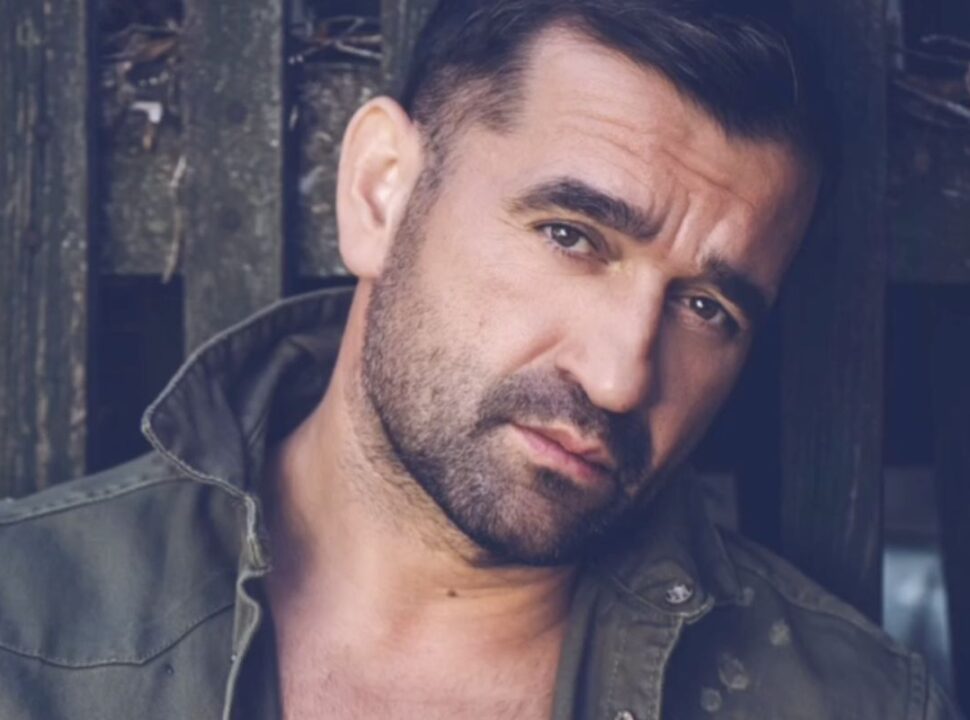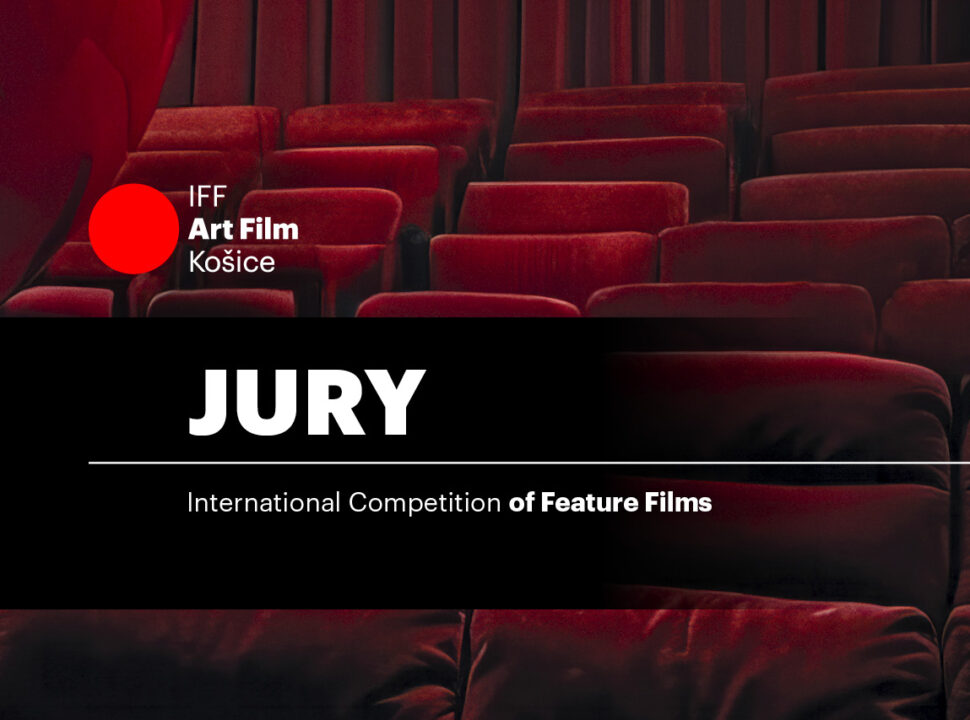During the opening ceremony of the 30th edition of the International Film Festival Art Film, the Slovak director and screenwriter Miloslav Luther received the honorary Golden Camera Award, which is given to filmmakers for their significant contribution to Slovak and foreign cinema, as well as for their influence on culture and social values.
Miloslav Luther presented his most recent feature film, The Dormant Account, as well as the director’s cut of Escape to Buda. However, his work is much more diverse. He mainly dealt with historical topics from the Middle Ages or World War II. He is also known for his adaptations of classic literary works. In his thank-you speech, the director also delivered an important message to young filmmakers.
Mr. Luther, you also refer to your latest film The Dormant Account as your last one. In world cinema, we know directors who still work even though they are old, such as Martin Scorsese or Ridley Scott. So, is The Dormant Account the last film, or are you still keeping a small reserve?
I have to say that I wish these world-class directors all the best, but I don’t envy them. The realisation ratios change very abruptly with a film. I would say that the changes here are even faster and more noticeable than they can be in Hollywood big productions. It depends on the individual creator whether he or she is motivated enough to cope with these changes and whether he or she can withstand the pressure. Mrs. Magda Vášáryová, who officially gave me with the award yesterday, said something that pleased me, I quote: “It’s important to be able to quit.” My last film was supposed to be Step into the Dark, but then I said to myself that there were still topics and ideas that I want to explore. I still wanted to finish what I needed to finish, and I think the movie The Dormant Account did it.
In your thank-you speech after receiving the Golden Camera Award, you sent a message to your followers to beware of the temptations that come with the times. What temptations did you have to struggle with during your career as a director?
In the 1950s, I was so frustrated as a student following an illness that I became a truant. Actually, I don’t know how I managed to graduate, probably only thanks to my teachers. Then I was asked what I did when I didn’t go to school. I replied that I went to the cinema. So from the 8th grade I was preparing for an artistic career. When I graduated from FAMU full of enthusiasm, I found that my path was blocked because my brother had emigrated. So I assisted other filmmakers for a while. The director of television at the time told me that I would never get into feature directing. Through a series of lucky coincidences, however, I finally got into it. I also saw a lot of people around me who were eager to film and create. So we all said to each other that if our superiors are sitting on chairs, at least let those chairs bite them properly. Every film, be it Mario and the Magician, Marble Staircase, Dangerous Liaisons and many others, we have worked on everything in a way that our conscience did not bite us. I think I have nothing to be ashamed of in this regard. One must always ask where justice lies. It is a part of a person’s conscience. It is cruel to some and kind to others. But so it is with everything, even with happiness. So we have to ask ourselves what is fair. I say this precisely because many of the temptations that existed in the past are returning today. Opportunities will come up where we have to make important decisions.
Your films largely touch on historical topics. Why did you so often choose to process past eras?
I have always felt that the past influences affect the present, and the present with the past persist into the future. The future is always shaped by what we have lived and are living, and so we must constantly return to it. People receive only abbreviated information about history and do not realise that the truth is hidden in the details. We can get to know them through stories. We learn some settled facts about history, but subjective history is very complex. We can’t cope with that. We can’t cope with the Slovak state from the WW2 era, we are still experiencing it, and because of that, the populist sentiment persists. We simply need to deal with social failures. That’s why it’s important to open it up again and again through art. In each of my films I have left the question open for subjective perception. I want to show films to those who want to understand them, who want to cleanse themselves of prejudices through their own perception and on the basis of their own life experiences.
You are spreading the universal idea of right or wrong decisions with your film. Do you see this as a lasting idea that you want to leave behind at the end of your filmmaking career?
Definitely. I think I’ve always worked with that theme in a way. When a person somehow makes a decision and suddenly goes in a different direction, then it is futile to say to oneself: I could have gone in a different direction. After all, I have already set out on that journey. Therefore, at the moment of making a decision, a person has to take into account all the things that he has experienced and the things that others have experienced before him. It is important to be interested in how it was before me. What from the past persists into the present?
It’s useless to make excuses later that I didn’t know something. Everyone today has the opportunity to gather information about the present and the past. I recently read a very interesting book about Napoleon, which was very exhaustive in terms of knowledge about the whole period. I realized with amazement that the time of Napoleon’s campaigns across Europe was very similar to today. All the circumstances that caused the whole tragedy up to Waterloo are inherent in the present time as well.
Art is meant to remind us, hyperbolically and in emotionally charged forms, that one should rely on nothing but one’s conscience.
Do you count among your good decisions all the films you’ve ever made?
Yes. I was lucky that good offers came my way and I was lucky that I didn’t accept the ones that might have been lucrative, but at the same time devastating for me. I’m sure they would have influenced my life so much that I would be a different person today. Because every decision shapes you. Although they were sometimes ambivalent decisions, but my happiness always rested on who I had around me – my wife, friends and colleagues. I met people who enriched my life and helped me to make the right choices.
Do you think there are dangerous offers waiting for young filmmakers even today?
It’s always been that way and it still is so. It was like that here and all over the world. These threats exist regardless of the regime, which can be hard-populist or hard-capitalist; one can always make the wrong choice. You know, it is possible to live decently at any age, as long as one can be sufficiently resilient to what is on offer.
I also want to ask what has always appealed to you about adapting literary works. What film did you discover in literature?
Every film is actually based on literature, because the script is literature. For a filmmaker, literature has the value of capturing the essential things that he can take up and bring to life through cinematic expression. The film is not a picture of life, but a new life!
By the way, I fundamentally oppose the notion that a film is created according to literature. They are two different artistic categories. It is a fundamental mistake to compare them. If you read in the book that there was a house on a hill by the sea. You are imagining it completely differently than I do. I’m sure you would have shot it differently than I did. Otherwise it would act in your film just as in mine. Not to mention the effect on the viewer. Another thought comes to mind that I read recently in Pavel Vilikovsky’s book – the reader is the reality of literature. It is a very deep thought. Literature exists only in the reader’s soul, in his imagination, in his thoughts. The same can be said about the film. The reality of the film is a particular viewer who processes it in his or her head, based on his or her life experience, his or her emotions of the moment. You never see the same film twice, once you see it in a good mood, another time in a bad mood.
Conversation between Juraj Čurný and Matúš Trišč
More at aff.cinepass.sk
The 30th edition of the International Film Festival Art Film will take place thanks to the support of:
Organiser: ART FILM FEST s.r.o.;
Co-organizers: City of Košice, K13 – Košice cultural centers, ART FILM FEST, n.o., LGM, s.r.o., FORLIVE;
The festival was financially supported by: Audiovisual Fund
The festival is co-financed by the Košice self-governing region from the Terra Incognita program;
Senior advertising partner: Slovenská elektrizačná prenosová sústava, a.s.;
Main partners: Národná lotériová spoločnosť TIPOS, Východoslovenská energetika, EUK-Force, SPP, CODES Brand House;
Automotive partner: PORSCHE; Official hotel: Hotel Yasmin;
Main media partners: TV JOJ, Pravda, Eurotelevízia;
Advertising partners: construction company Adefex, Jadrová a vyraďovacia spoločnosť, a.s., Best Press, U. S. Steel Košice, Betpres, Transpetrol, SLOVAKIA TRAVEL, ANTIK Telecom, Cinema Úsmev, CORE LABS, Lucka spring water;
Technological partners: NOV, ZEBRA, DELTA OnLine, ARICOMA, BigON;
Official contractors: DKC Veritas, Eastern Slovak Museum in Košice, Krušovice BOHÉM, BARZZUZ, DOMOS SLOVAKIA, Restaurant Contessa, Café Slávia; Official wine: Kubbo Select and Ostrožovič;
Media partners: JOJ PLAY, JOJ 24, Film Europe, Rádio KOŠICE, aktuality.sk, Forbes, Korzár, Slovenka, SITA, TASR, See & Go, BigMedia, Košice City Guide, Film.sk, Visit Košice, diva.sk, zenskyweb.sk, MOJAkultúra;
Partners: Východoslovenská vodárenská spoločnosť, Nadácia CEF, Slovnaft, AUPARK Košice, Carmeuse Slovakia, JOJ Cinema, Hydrotour travel agency, Taper, YumEarth, KAIFER advokátska kancelária s.r.o., Deva, WITKOWITZ SLOVAKIA, Košice Airport, ECO Technologies, CPK Slovakia, Casa Trade – Casablanca cafe, DC MEDICAL, KPK Reklama, Kvitok, HAIR Factory Košice, Kvety Garomi, Air Taxi, Tesco Stores SR, a.s.;
Financial awards partners: CANON, Filmarina;
Catering partners: Ohnisko – Fire Dining & Brew Bar, Pub u kohúta, El Nacional, Maiko Sushi, Café de Paris, Tabačka Kulturfabrik; BISTRO Blanc, Andiamo GROUP, BENZE; Red Velvet Cake Bar; Tahiti, Café Veritas




